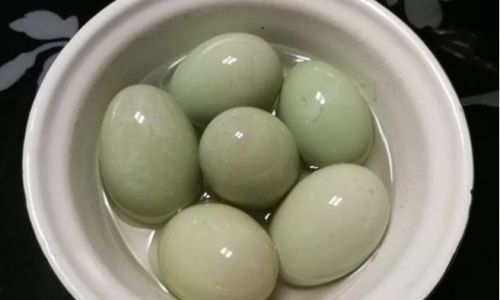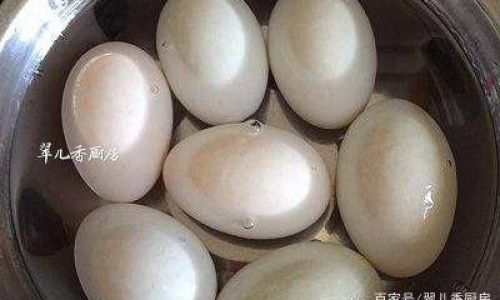Introduction
Duck eggs, a culinary delight cherished across various regions for their rich, creamy yolks and unique texture, often undergo the process of salting to enhance their flavor profile and extend shelf life. Whether prepared traditionally by brining, pickling, or through modern preservation techniques, achieving the perfect balance of saltiness is crucial. However, it is not uncommon for home cooks and even seasoned chefs to encounter the dilemma of under-salted duck eggs—a situation where the eggs lack the desired savory depth. This article delves into the various remedies one can employ to rescue under-salted duck eggs, ensuring they still deliver on taste without compromising their integrity or introducing unwanted flavors.
Understanding the Importance of Salt in Duck Egg Preservation
Salt plays a multifaceted role in the preservation and flavoring of duck eggs. Firstly, it acts as a natural preservative by drawing out moisture from the eggs, creating an environment hostile to bacteria and mold growth. This extends the shelf life of the eggs, allowing them to be enjoyed long after their fresh state would have otherwise permitted. Secondly, salt enhances the flavor profile, adding depth and complexity to the eggs’ taste. It amplifies other ingredients and spices, creating a harmonious blend that is both satisfying and inviting.
When duck eggs are under-salted, they not only risk spoilage but also lack the characteristic savory notes that make them a culinary highlight. This can be particularly disappointing, especially after investing time and resources into the preparation process. Fortunately, there are several strategies one can adopt to rectify this issue without resorting to extreme measures that might alter the eggs’ texture or introduce unwanted flavors.
Initial Assessment and Preparation
Before embarking on any remedy, it is essential to conduct an initial assessment of the under-salted duck eggs. Consider the following factors:
-
Stage of Preservation: Are the eggs freshly prepared or have they been stored for some time? Freshly prepared eggs have more flexibility in terms of adding salt without significantly affecting their texture.

-
Method of Preparation: How were the eggs originally prepared? Understanding the method (e.g., brining, pickling, boiling with saltwater) will guide the choice of remedy.
-
Severity of Under-Salting: Is the lack of salt subtle or pronounced? Mildly under-salted eggs may require minimal intervention, whereas severely under-salted ones might necessitate more drastic measures.
-
Desired Outcome: Are you aiming to restore the eggs for immediate consumption or for long-term storage? This will influence the choice of remedy, as some methods are better suited for short-term use.
Once you have a clear understanding of these factors, you can proceed with one or a combination of the following remedies.
Remedy 1: Soaking in Saltwater Solution
One of the simplest and most effective remedies for under-salted duck eggs is soaking them in a saltwater solution. This method works best for freshly prepared or recently under-salted eggs. Here’s how to do it:

-
Prepare the Saltwater Solution: Dissolve a sufficient amount of salt in water to create a brine that is slightly saltier than your desired final taste. The exact ratio will depend on the severity of the under-salting and your personal preference. As a general guideline, start with a ratio of about 1/4 cup of salt per quart of water and adjust accordingly.
-
Submerge the Eggs: Place the under-salted duck eggs in the prepared saltwater solution, ensuring they are fully submerged. Use a weight, such as a small plate, to keep them down if necessary.
-
Soak for the Required Time: The soaking time will vary based on the initial saltiness and the desired outcome. Start with a soaking period of 24-48 hours, tasting the eggs periodically to check for the desired level of saltiness.
-
Refrigerate or Continue Preservation: Once the eggs have reached the desired saltiness, remove them from the saltwater solution, rinse them gently, and either refrigerate for immediate use or proceed with additional preservation steps if long-term storage is desired.
Remedy 2: Boiling with Additional Salt
For eggs that have already undergone some form of cooking but are still under-salted, boiling them with additional salt can be an effective remedy. This method is particularly suitable for hard-boiled or soft-boiled eggs.

-
Prepare a Salted Boiling Water: Fill a pot with water and add a generous amount of salt. The salt concentration should be higher than usual to compensate for the eggs’ existing lack of salt.
-
Boil the Eggs: Gently place the under-salted duck eggs in the boiling water. Adjust the cooking time based on your preference for egg doneness (e.g., soft-boiled, medium-boiled, hard-boiled).
-
Cool and Serve: Once cooked, remove the eggs from the boiling water, let them cool, and peel as needed. The additional salt during boiling should have infused the eggs with the required savory notes.
Remedy 3: Brining for Extended Periods
If the eggs were originally prepared using a brining method but were under-salted, extending the brining period can help restore the desired saltiness. This method is suitable for eggs that have not yet reached their final stage of preservation or consumption.
-
Adjust the Brine: Increase the salt concentration of the existing brine by adding more salt. Stir until fully dissolved.

-
Resume Brining: Return the under-salted duck eggs to the adjusted brine, ensuring they are fully submerged.
-
Monitor and Taste: Brine the eggs for an extended period, tasting periodically until the desired level of saltiness is achieved. The exact duration will depend on the initial saltiness and the severity of the under-salting.
-
Final Preparation: Once the eggs have reached the desired saltiness, proceed with the final stages of preparation, such as rinsing, drying, and storing or consuming as desired.
Remedy 4: Pickling with Vinegar and Salt
Pickling is another effective method for restoring saltiness to under-salted duck eggs, especially if you prefer a tangy, pickled flavor. This method works well for eggs that can tolerate a bit of acidity.
-
Prepare a Pickling Solution: Combine vinegar (white or apple cider vinegar works well) with water and a generous amount of salt. The ratio will depend on your taste preferences, but a good starting point is 1 part vinegar to 2 parts water with enough salt to taste.

-
Submerge the Eggs: Place the under-salted duck eggs in the pickling solution, ensuring they are fully submerged. Use a weight if necessary.
-
Allow to Pickle: Allow the eggs to pickle for a few days to a week, tasting periodically until they reach the desired level of saltiness and tanginess.
-
Store or Consume: Once the eggs have achieved the desired flavor, remove them from the pickling solution, rinse gently, and either store in a sealed container in the refrigerator or consume immediately.
Conclusion
Under-salted duck eggs may seem like a culinary setback, but with the right remedies, they can be rescued and transformed into a delightful addition to any meal. Whether you choose to soak them in a saltwater solution, boil with additional salt, extend the brining period, or pickle with vinegar and salt, each method offers a viable solution to restore the desired saltiness without compromising the eggs’ texture or introducing unwanted flavors. By carefully assessing the initial conditions and selecting the most appropriate remedy, you can ensure that your under-salted duck eggs are transformed into a culinary triumph. Happy cooking!




0 comments